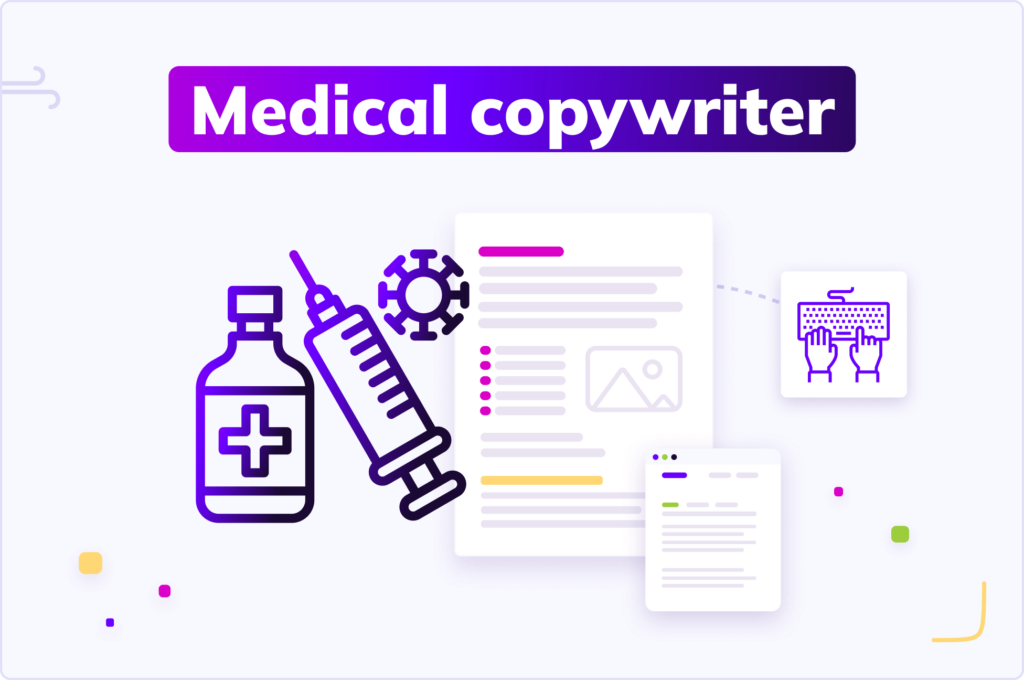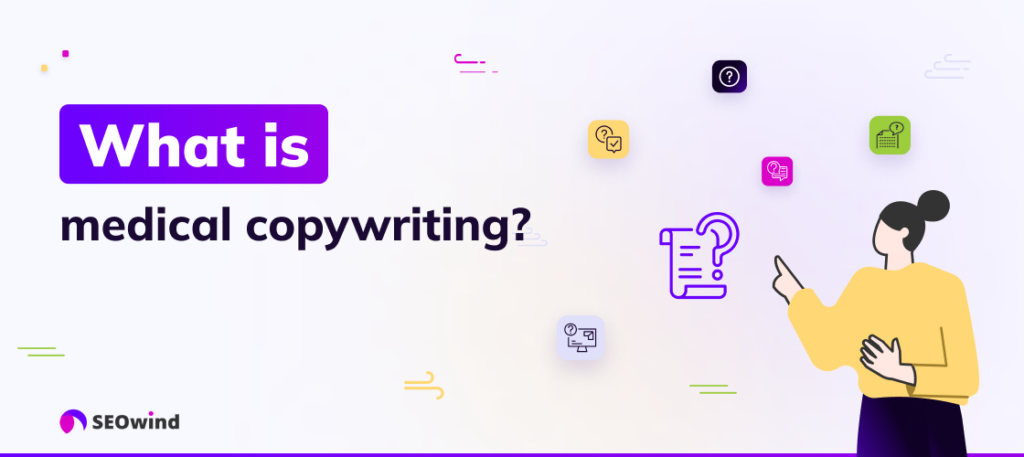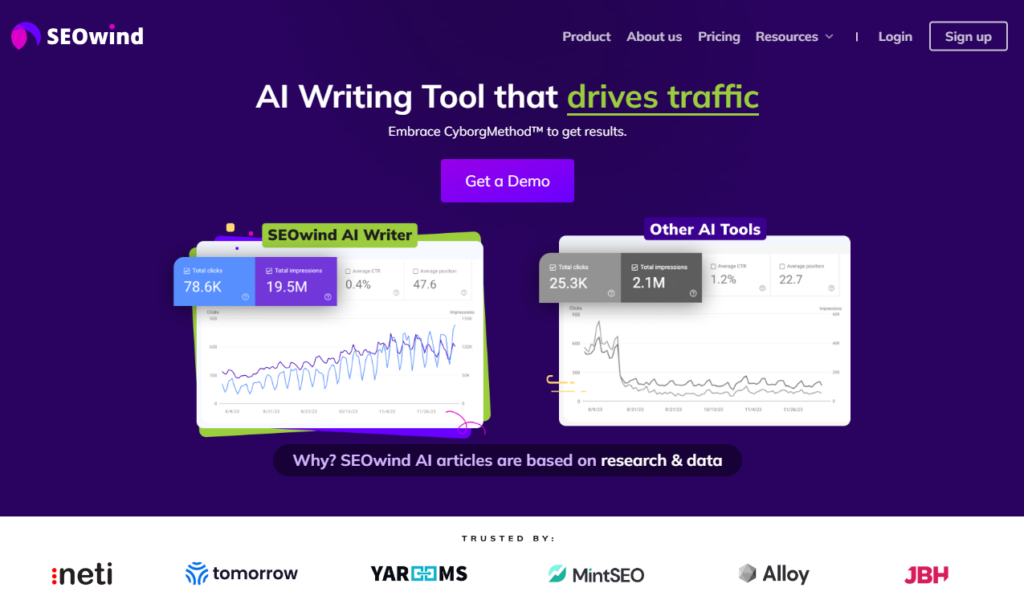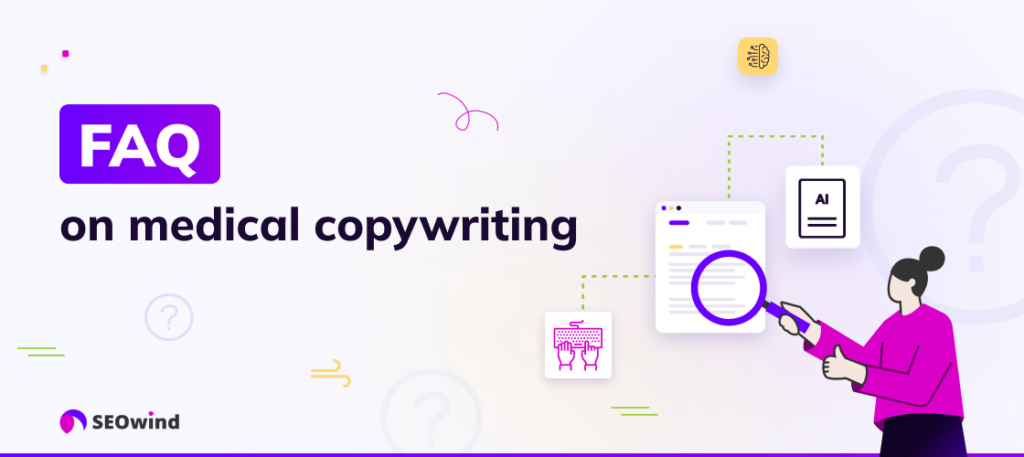Medical Copywriter – Top Medical Content Writing Services

As we sail through the vast ocean of the internet, we often come across blog posts, articles,
product descriptions, and numerous forms of online content related to healthcare. Ever wondered
who spins these compelling stories and medically accurate information? That’s right! It’s a
medical copywriter. Dive in with me as we explore more about their fascinating work, know what
skills you should look for when hiring a medical copywriter, and how AI can empower them.
What is medical copywriting?

At its core, medical copywriting converges creativity and scientific accuracy. It makes vital health insights digestible to various audiences, from physicians to patients to the general public. With rapidly evolving technology and constant breakthroughs, this role is invaluable for navigating the complex world of medicine with words that inform, influence, and inspire.
What does a medical copywriter do? Typical responsibilities

A medical copywriter is an integral figure who harnesses language to navigate the intricate intersections of healthcare and communication. These specialists carry a typical subset of responsibilities that differentiate them from generic copywriters.
To crystallize understanding, let’s look into these typical responsibilities:
- Creating Medical Content: Top-tier on their task roster involves generating accurate, engaging content about various healthcare topics. This can span blog posts, articles, white papers, reports, eBooks, and patient education materials.
- Decoding Complex Information: A large part of being a medical copywriter entails rendering complex health subjects into easily digestible reading material for a wider audience- patients, doctors, or even healthcare marketers.
- Compliance with Regulatory Approvals: Ensuring compliance with industry-level regulations such as FDA requirements is critical while producing this content.
- Exercise SEO Practices: To amplify online visibility and reach out to larger audiences effectively, adept freelance healthcare copywriters learn and implement best SEO practices within their writing process.
- Working Closely With Medical Experts: Medical copywriters often engage with scientists or doctors for input and clarification to ensure the accuracy and reliability of the information presented.
- Marketing Communication Enhancement: Beyond drafting text for publications or sites, developing compelling marketing collaterals like brochures and advertisements underlines a potential growth avenue for freelance healthcare copywriters.
- Proofread & Edit Documents: An end-to-end commitment that includes refining existing documents by identifying errors and enhancing overall readability wraps up some key functions these professionals perform.
These responsibilities testify to the expansive scope a professional medical writer encompasses and how valuable they can be for entities attempting to convey impactful narratives within the healthcare industry. Ninety-nine percent of the work may well be relegated to putting pen to paper – the remaining one percent and the multitude of surrounding peculiarities elevate it from a mundane task to an art form in itself!
Who can benefit from medical copywriting?

Many sectors and professionals within the healthcare industry and beyond stand to benefit significantly from these specialized services.
First, pharmaceutical companies form an integral group that requires such expertise. Producing intricate documentation on new drugs, benefits, side effects, uses, and more requires a profound understanding of the subject matter and an adept ability to communicate this complex information in a simple, digestible manner.
Next come hospitals and healthcare facilities. They, too, need medico-marketing literature – brochures, newsletters, or website content – that portrays their prowess while ensuring compliance with stringent regulations about medical advertising.
Let’s not leave out health insurance firms seeking clear communication conveying terms and conditions in policy documents to avoid potential misunderstandings or disputes later on. A knowledgeable medical copywriter can provide such clarity.
Medical practitioners, individually, too, have begun realizing the merits of personalized blogs or articles showcasing their area of special expertise – yet another scenario where medical copywriters excel!
In a surprising twist, though, it’s not just those directly connected to medicine who stand to gain. Any business that interacts tangentially with healthcare – think fitness centers discussing exercise physiology to enhance sales appeal or software developers creating apps for patient records management – could use the distinctive skills housed by a talented writer specializing in this domain.
Who can AI support medical copywriting?

AI, or artificial intelligence, is revolutionizing numerous industries, waving its magic wand over various fields, medicine, and copywriting being just a couple of them. When these three: medicine, copywriting, and AI intersect, we get an innovative domain known as AI-supported medical copywriting.
There are several ways that AI can streamline the work of medical copywriters. With its ability to process vast amounts of information rapidly and accurately, AI can perform tasks ranging from preliminary research to content creation and even SEO optimization. Let’s dive deeper into some specific areas where AI manifests its prowess:
Assistance in Research
The world of medicine evolves faster than you blink; breakthroughs happen daily across numerous specializations. It could become overwhelming for a medical copywriter to keep up-to-date with every new development or discovery by manual efforts alone.
This is where the power of AI comes into play. Intelligent systems can automate the challenging process of gathering information from various sources, such as academic journals or databases. These AIs are capable enough to track changes in real time and store pertinent updates for further utilization.
Content Creation
Writing about a topic as complex as healthcare can often be daunting. Framing each sentence carefully with accurate information while keeping it engaging is a tough nut to crack.
Fear not! Notable advancements in Natural Language Generation (NLG), the branch that generates page text from data input, have been profoundly transforming content creation. They use everything from raw facts and figures presented clearly and effectively to adding unique narratives, making your article more reader-friendly.
SEO Audit & Optimization
One critical parameter that may go unattended amidst all the technicalities in creating impactful healthcare writing is SEO optimization – how well your content will rank on search engines like Google.
Here again, Artificial Intelligence offers excellent tools that conduct an effective website audit, checking everything from metadata to keyword density, thus ensuring optimal visibility for your products or services. Some of the AI-driven tools can even offer suggestions for improvement!
Content Personalization
In an era where ‘personalized experiences’ are becoming more and more significant, AI technology can lead the reins in tailoring communication strategies targeted at a specific audience group or individual.
AI algorithms analyze various data points from the end-user behavior patterns that include preferences, needs, age groups, etc., to produce highly relevant and personalized healthcare content.
Thus, with its fascinating suite of capabilities, AI is a robust backbone supporting medical copywriters in seamlessly producing high-quality content. Through dynamic research tools, innovative editing software, and engaging narrative builders, these intelligent systems bring out the best in every written piece while improving efficiency significantly!
How SEOwind helps with medical copywriting
Medical copywriting presents unique challenges – the language and topics are intricate, and accuracy is imperatively critical. Here comes the play of SEOwind, a long-form AI Writer with an edge in helping to navigate these complexities.

Drive traffic with high-quality AI content
Creating valuable material attracts visitors and holds them for longer on your website, boosting online exposure and potential conversions. With SEOwind by your side, you can churn out high-quality articles strategically tailored toward healthcare audiences that educate and evoke curiosity for more exploration. The automatic generation of well-structured texts facilitates rapidly enhanced content production that appeases search engines and users.
In-depth content research
Medical writing requires a solid ground of evidence-based facts along with proficient knowledge in specific areas. Luckily, SEOwind’s robust system administers comprehensive content analysis against prominent resources before generating any draft, ensuring each written piece stands robustly upon nuanced understanding and precise medical terminologies. Therefore, it simplifies factual delivery without overcrowding your mind with strenuous information verification demands.
Knowing search intent inside out
SEO is about aligning content with what individuals seek and recognizing intention forms its foundation. By instinctively grasping this user intent particularity within health-related queries via artificial intelligence capabilities, SEOwind better informs about creating responsive text that effectively solves readers’ puzzles or addresses their concerns. As a result, it subtly guides visitors into becoming loyal customers.
AI articles aligned with your brand voice
Each brand has a distinct personality that must be reflected in every public communication. Hence, consistency in style forms an integral part of strategy formation at SEOwind – another benefit of adopting this AI writer tool for medical copywriting purposes. Based on specific pre-fed details like tone-of-voice preferences and target audience features, effective filters work to maintain brand uniformity throughout various created content.
AI content enriched with stats and quotes
To intensify the credibility and appeal of your medical narratives, SEOwind enriches material with relevant statistics and fitting quotes. Effectively handled by its intelligent features, data incorporation lends weight to the written points while enhancing overall readability without verbose constructs.
Interlinking inside AI article
Internal linking is pivotal for improved navigation, reflected site hierarchy for search engine bots, and encouraging prolonged sessions. The efficient interlinking feature within SEOwind ensures optimal allocation of these internal links within articles that enhance user-friendliness and provide SEO benefits, thereby promising an elevated site ranking.
In essence, through transformative technologies like AI in quality-driven products such as SEOwind – juggling accuracy, relevancy, and creativity in medical copywriting becomes less daunting!
The benefits of hiring a medical copywriter

Healthcare and medicine are complex, intricate, and often overwhelming for the average person to navigate. Professional medical copywriters serve as guides who can translate this complexity into clear and understandable content that resonates with both patients and professionals alike.
Let’s delve into the manifold benefits of hiring a proficient medical copywriter:
- Specialty Expertise: A seasoned medical copywriter possesses specialized knowledge about the healthcare industry. They draw upon this expertise to develop compelling, concise, and accurate content around numerous subjects ranging from intricate medical conditions to cutting-edge healthcare technology.
- Impeccable Accuracy: With lives potentially on the line, there’s no room for error in health-related information dissemination. Medical copywriters ensure detailed accuracy in producing scientifically sound content, thus preventing misunderstandings or misinterpretations.
- Empathetic Communication: Articulating sensitive health topics necessitates a degree of compassion only a skilled writer can deliver. Medical copywriters can create a sense of trust and understanding between companies and consumers via their aptitude for empathetic storytelling.
- Improved SEO Performance: Content created by an expert will more likely be optimized for search engine algorithms—drawing more traffic to your site’s doorstep. Additionally, these writers adeptly use keywords without compromising content quality—an essential task in increasing online visibility.
- Saving Time & Resources: Moving beyond idea conception to the final draft requires significant time and mental energy investment—resources better used elsewhere in your business operations. Delegating these writing tasks frees up valuable resources.
- Growth & Increased Conversion Rates: Lastly but importantly, well-articulated communication piques reader interest—be it potential patients or fellow professionals—which translates into increased website engagement and higher conversion rates.
In essence, when you collaborate with a professional medical copywriter, you’re investing not only in superiorly crafted content but also in enhancing the depths of connection with your audience. This relationship can distinguish between a message merely being seen or resonating and generating impactful reactions.
Types Of Medical Copywriting
Just as the medical field is broad, so are the types of medical copywriting. Each must transform complex information into concise, relatable prose that strikes a chord with readers. Here are several key types:
- Medical educational content: These copywriters craft educational materials – from brochures and presentations to e-learning modules and informational videos. They break down intricate medical concepts in a way that both medical professionals and laypeople can understand.
- Patient education materials: An essential element within healthcare practice involves enlightening patients about their health conditions and treatment options. A detail-oriented writer adept in patient-centered language goes a long way in making such material comprehensible without diluting its core message.
- Healthcare Digital Content: With the surge in digital healthcare resources, copywriters now create online blogs, articles, and social media posts directed toward educating readers about various health topics or promoting specific health services.
- Pharmaceutical Copywriting: This specialty creates promotional materials for pharmaceutical drugs or therapies. The role involves detailing product benefits while adhering to strict industry regulations on drug promotion.
- Medical Device Manuals: Precision meets regulation here as this branch revolves around writing user instructions for different medical devices – where clarity and simplicity are paramount alongside compliance with statutory regulatory guidelines.
No matter what path you choose, remember that successful medical copywriting hinges on delivering clear messages tailored to diverse audiences – ranging from clinicians steeped in jargon to patients seeking accessible healthcare information.
How do I become a medical copywriter?

Understand the Role and Responsibilities of a Medical Copywriter
Typically, as a medical copywriter, your main task would be to articulate complex medical concepts in an easy-to-understand fashion for different audiences. This might include creating content for healthcare websites, writing patient education materials, or developing promotional content for pharmaceutical companies.
Your tasks would further involve understanding the target audience’s knowledge level and health literacy – meaning you’d need to create engaging yet appropriate content. Remember, achieving clarity without losing factual accuracy is key when communicating in this field.
Exploring Different Paths: Freelance vs In-house Medical Copywriting Opportunities
After gaining insight into a day in the life of a medical copywriter, let’s discuss how you can initiate your career path. Essentially, there are two routes you can opt for: freelance and in-house opportunities.
- Freelance Opportunities: This option allows more work flexibility as you control your schedule and clientele. Moreover, as a freelance medical writer, jobs float around various verticals such as blogs, magazines, and digital marketing firms – the experience is different with each project.
- In-House Position: If steadiness appeals more to you than sporadic freelance projects, an in-house pharmaceutical company or marketing agency job might suit you well.
As both have advantages and drawbacks, it depends on what conditions fit best with your personal preferences.
The Skills and Qualifications Required to Excel in Medical Copywriting
Now that we’ve discussed potential paths let’s delve into what qualifications and skills are advantageous when stepping into this industry.
- Solid Background Knowledge: Firstly, having some background knowledge in science or medicine proves handy since it eases understanding complex concepts while concurrently making the content accurate and credible.
- Exceptional Writing Skills: Mastering the art of writing is a non-negotiable skill. The better you can express ideas, facts, and data concisely yet informatively, the more successful you’re likely to be as a medical copywriter.
- Familiarity with SEO Tactics: Understanding SEO tactics is also integral. Remember that even your best articles won’t gather much attention if they don’t reach your target audience. SEO techniques ensure your content appears in relevant searches.
- Research Proficiency: Lastly, being adept at research is crucial because every medical write-up requires substantiating facts from reliable resources.
Best Practices for successful medical copywriting

In medical copywriting, creating compelling and informative content is paramount to success. The following sections walk you through effective practices for producing engaging healthcare pieces that inform and engage your audience.
Crafting Engaging and Informative Content for Healthcare Audiences
As a medical copywriter, you aim to communicate potentially complex health information in a way easily digestible by any reader – healthcare professionals or general public audiences. Here are several strategies I employ:
- Simplicity: Utilize direct, straightforward language to avoid overly complicating the main message. Jargon ought not to overshadow essential facts.
- Engagement: Create content that draws in readers from the opening line, takes them on a meaningful journey, and leaves them feeling enlightened by the conclusion.
- Accuracy: Ensure all the details included are based on verifiable clinical research or reliable medical sources. Misinformation erodes credibility and trust swiftly.
Remember, it’s about placing patients’ needs first – use terminology they can comprehend while maintaining their interest till the end.
Transitioning into another facet beyond crafting content itself, let’s now delve into utilizing SEO (Search Engine Optimization) as an integral part of successful medical copywriting.
Utilizing SEO Strategies to Enhance Visibility and Reach in the Healthcare Sector
At its core, writing is about being seen – metaphorically and literally speaking. To this effect, leveraging SEO techniques will ensure your well-crafted piece reaches as many eyes as possible online:
- Magic of Keywords: Determine what phrases your intended audience uses when searching for health info online, then integrate these within your text naturally so search engines rank your work higher.
- Metadata Mastery: Include strong meta titles & descriptions with relevant keywords to sentence Google searches successfully.
- Link Building Brilliance: Incorporating inbound links (ones that lead back to your site) gives search engines a positive signal about your website’s quality, boosting its visibility.
- Mobile Optimization: Considering mobile devices are ubiquitous, optimizing your content for mobile readability ensures the delightful user experience it offers translates across all platforms.
Implementing these SEO strategies broadens the reach of your health messages and instrumentalizes your engaging medical copy. Hence, it benefits as many individuals as possible in their health journeys. When both are done right – crafting informative & engaging content alongside clever SEO tech use – they do not just co-exist but complement each other greatly, setting you on the path to successful medical copywriting.
FAQ on medical copywriting

One of the most compelling aspects of any subject is the ability to delve into frequently asked questions, bringing clarity and demystifying common misconceptions. In a field as specialized as medical copywriting, several queries often crop up that warrant further exploration.
What Is the Difference Between a Copywriter and a Medical Writer?
To understand this distinction, it’s crucial first to appreciate what each role entails. A conventional copywriter focuses chiefly on crafting engaging content that excites people about a product or service. Their aim is essentially persuasive – they want readers to act by buying a product, subscribing to a newsletter, or engaging with a brand somehow.
On the other hand, let’s consider a medical writer. This role goes beyond creating persuasive content; these professionals require an in-depth understanding of complex scientific principles relevant to medicine and health care. They use their knowledge to produce clear, accurate information for various audiences, including doctors, researchers, patients, and pharmaceutical companies.
While both roles involve writing, each demands its own set of skills and expertise borne out of distinct educational backgrounds and experiences. The main difference lies in the specialized nature of medical writing compared with general copywriting, which often covers broader industries.
Do Medical Writers Get Paid Well?
The grand question about remuneration always finds its way into career discussions – and rightly so. After all, earning potential can greatly influence one’s decision when choosing their professional path.
Referring to research from Payscale.com (a reliable source for salary-related data), medical writers earn substantially due mainly to the specialized expertise required for this line of work. My most recent check on this platform indicates:
- On average, a typical medical copywriter earns around $72k per year,
- For someone focused more generically within healthcare copywriting, salary ranges closer to $70k annually,
- If you venture into pharmaceutical copywriting, you stand to earn roughly $85k yearly.
These numbers are just averages – professionals who continue to hone their craft and stay abreast of industry trends can make significantly more. Therefore, it’s safe to say that medical writers indeed get compensated well for the valuable skills they bring to the table.
What’s the Difference Between a Healthcare and Medical Copywriter?
Drawing distinct lines between different roles in an industry is always crucial to prevent
confusion. The terms “healthcare copywriter” and “medical copywriter” might seem
interchangeable due to their seemingly overlapping fields, but each role communicates with a
specific audience about specific subjects.
A healthcare copywriter often focuses on topics that revolve around general wellness,
preventative care, health insurance issues, or patient experiences. On the other hand, medical
copywriters zero in on more complex themes such as clinical trials, information about diseases
and treatments, new research discoveries, or pharmaceutical products. They need a more
comprehensive knowledge base in medicine and science since they have to translate dense
technical jargon into easily understandable content for non-medical audiences.
Clients served by healthcare vs medical copywriters
With regard to clients served by these two types of writers:
- Healthcare copywriters usually engage with fitness companies, health insurance
providers, hospitals, holistic health businesses, or lifestyle magazines. - Medical copywriters more often collaborate with pharmaceutical companies, scientific
research institutes or gifted professionals pertaining to specialized medical fields like
genetics or oncology.
Both professions require exceptional writing skills and attention to detail in capturing any
necessary compliance protocols; there are nuanced differences between them that should be
considered when choosing from whom you intend to seek services.
Healthcare and medical copywriting both serve significant roles within health
communication, where context determines which specialist is better suited for the job at hand.
An accurate understanding of these crossover disciplines can make all the difference when striving
to target your message effectively toward your intended demographic.
The aim here is not to pit healthcare against medical copywriting but rather denote their
significance individually and collectively within the broad horizon of health literature while
highlighting their ability to work symbiotically, providing informational balance from both
spectrums.
Both capture diverse segments under the vast umbrella of health-related content generation yet
maintain a characteristic uniqueness reliant upon their individual areas of expertise. These distinct
professions capture the concept of breadth versus depth within the health communication
industry.